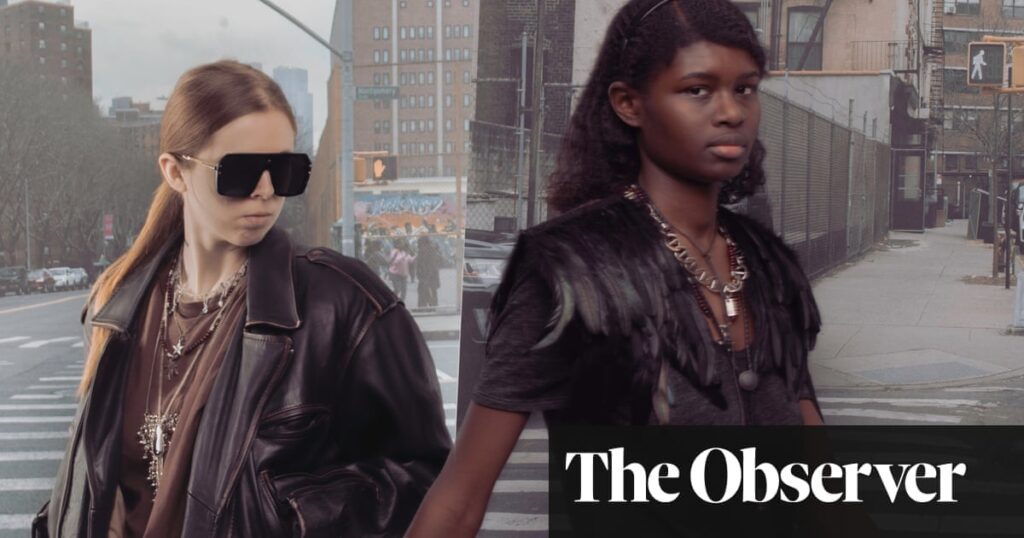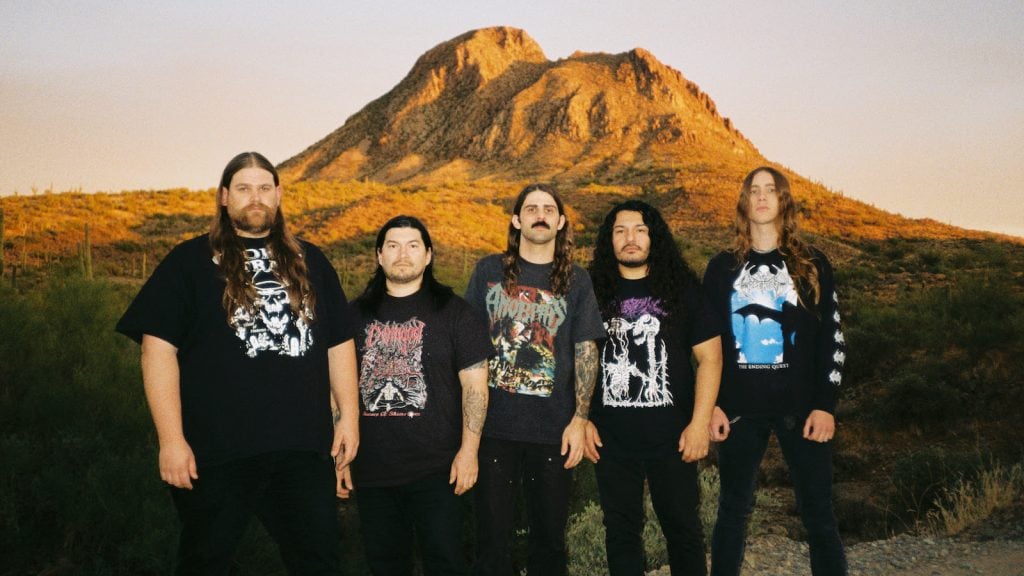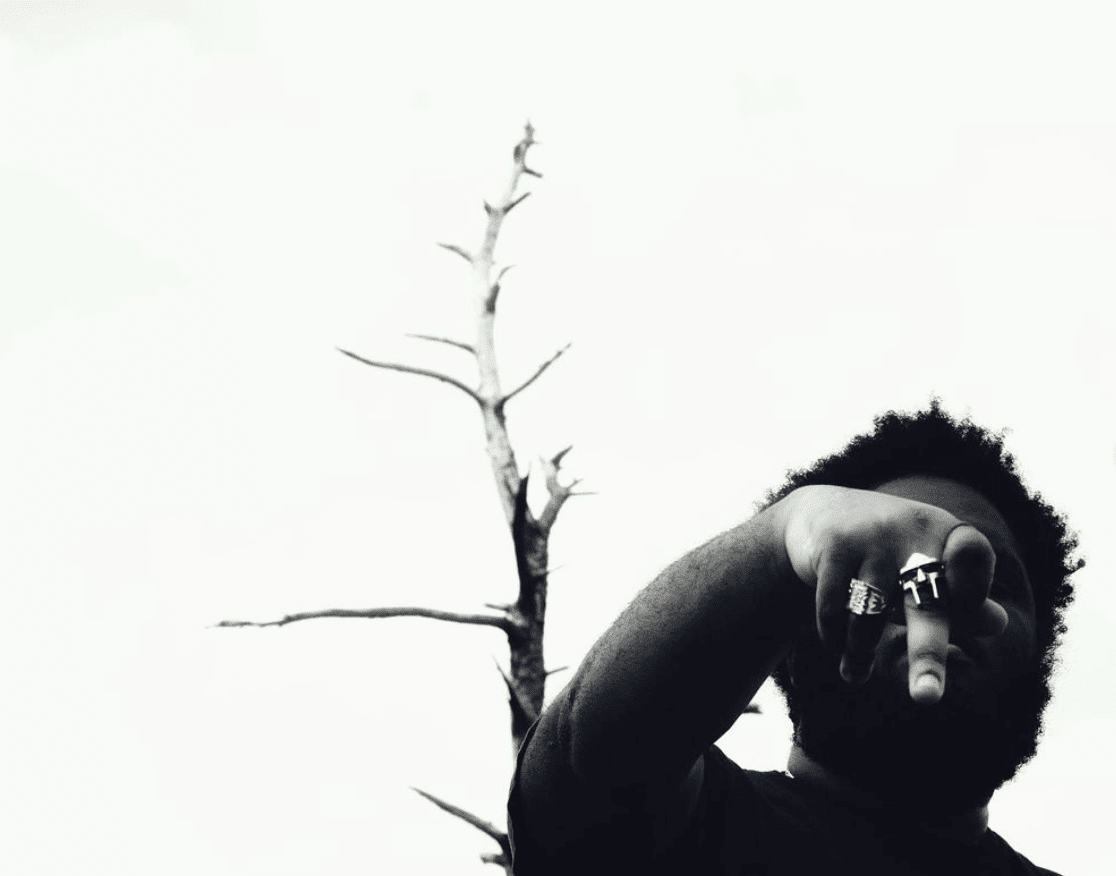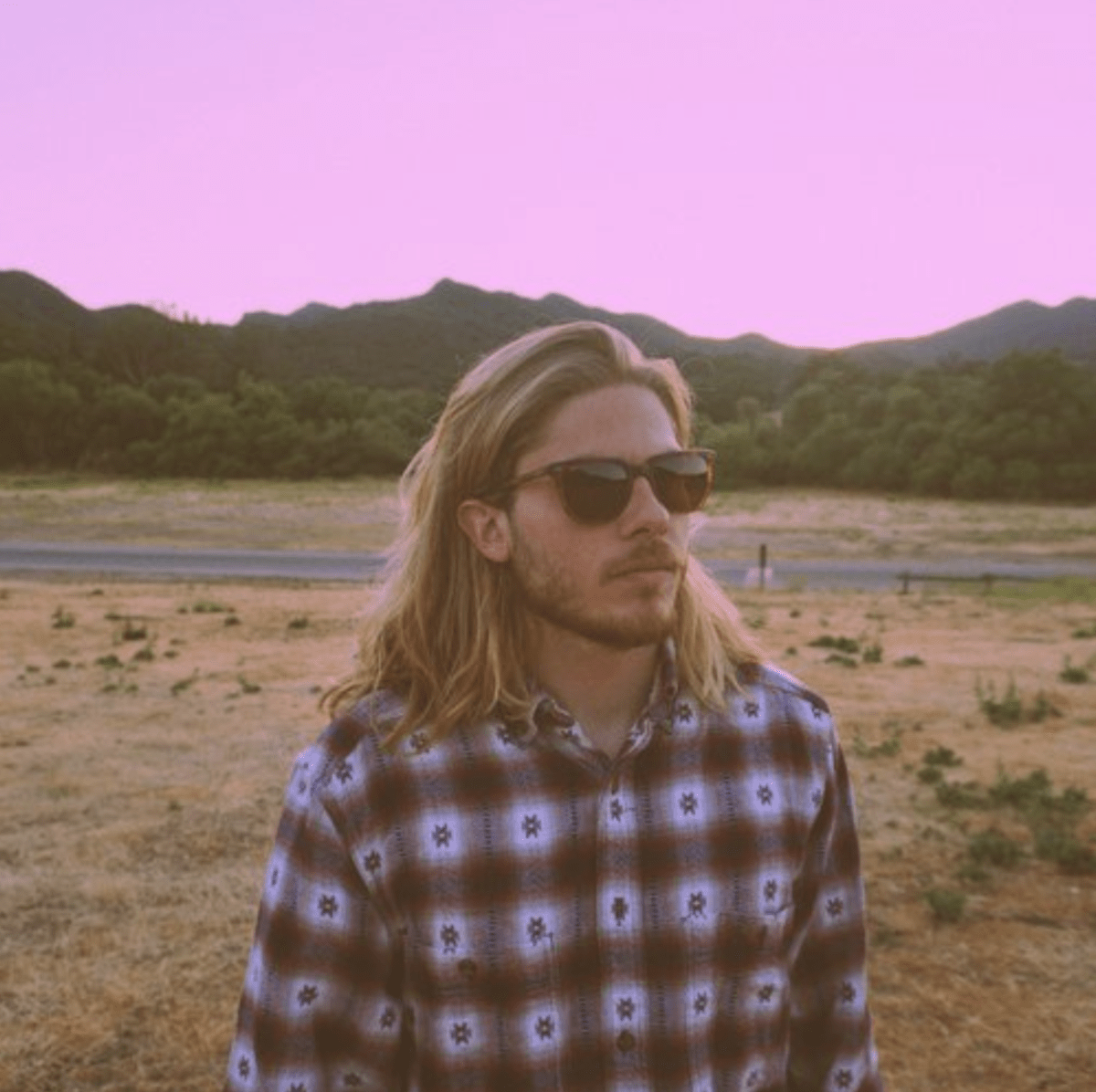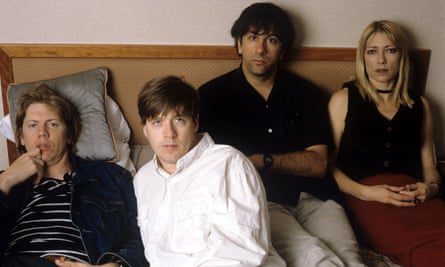
‘I’m journalling, just like Taylor Swift’: Kim Gordon on TikTok, motherhood and her revealing new album
The Daft Hunks are two twentysomething YouTube influencers who don’t review music so much as react to it (their most-watched videos see them listening to Olivia Rodrigo and Lana Del Rey in real time). On their latest video they check out the new single from Kim Gordon. “She’s 70 years old and still doing it,” says one of the Hunks. “That’s crazy,” says the other.
They begin playing Gordon’s new single, Bye Bye, its dread-inducing hip-hop beats scraping against each other as Gordon intones a scribbled to-do list. “Buy a suitcase, pants to the cleaner,” Gordon raps threateningly. “Call the vet, call the groomer.”
The Hunks are in bits. “Nahhhhh!” screams one, twisting his fists in the air as if he were in a hip-hop video. “It’s literally Playboi Carti!” he shouts, referencing how much the song sounds like something the 27-year-old trap rapper might make.
It’s not just them. Anthony Fantano, the biggest music reviewer on YouTube, opines: “Kim Gordon is writing trap bangers, about packing things for a trip, that go harder than you can ever imagine.” On TikTok, teens are filming themselves following Gordon’s packing instructions: “Sleeping pills, sneakers, boots” listed in sullen verse. After more than 40 years in music, Gordon has something of a viral hit.
She is nonchalant about her dark trap direction, a sound that began on her 2019 solo debut No Home Record but has been cemented on new album The Collective – filled with intoned notebook scribbles and pained post-industrial beats. “People used to ask Sonic Youth all the time why our music was so intense or dissonant and I just think that’s what’s in life,” she says. “It didn’t feel like I was making an abrasive record. I just feel like it’s realistic.”
What about her lyrics, clipped and present tense, which pepper the record like a collage rather than a narrative – are they snatched from real diaries? “Sure I’m journalling, just like Taylor Swift,” she smirks. “But you know, I’m not writing about sad things. Well I guess a little sad. There is something about that kind of writing that’s powerful. It’s something you can do right now.”
We meet somewhat awkwardly at the Karma art bookstore in Manhattan’s East Village (there are no chairs so we sit alongside each other in the front window display). It’s a location selected because Gordon is publishing a book with them next month, a compilation of her late brother Keller’s notebooks. He was also journalling, in a way, Gordon points out. Keller was diagnosed with paranoid schizophrenia after leaving college and spent much of his life needing professional care. He died last year.
“He was a Shakespeare and classics scholar and wrote poetry – sonnets, mostly,” Gordon says. “He kept these notebooks and you can hardly read them but they’re quite beautiful, sort of loopy. You can pick out some words: ‘Adonis’, and ‘Venus’ and some Greek things. It’s a kind of a homage because he never lived up to his potential. I wanted to do something that celebrated him.”
Celebration of her brother aside, Gordon is keen to steer conversation away from her personal life, notably the passages in her 2015 autobiography, Girl in a Band, in which she details the “pattern of lies, ultimatums, and phoney promises” that led to the breakdown of her marriage to her Sonic Youth bandmate Thurston Moore.
“I’m sort of miffed about the London Times piece that just came out about me, because the subtitle was about infidelity. The writer, it seemed, was just really looking for dirt. That stuff is just way past beyond for me.”
Perhaps because of that piece, Gordon, who describes herself as an introvert, is especially reserved when the conversation drifts to the subject of herself, but talks with great intensity about her work – as well as fears about Trump (“The scariest thing about a second term is his attitudes to climate”), the response to the war in Gaza (“It’s torn New York apart; the left has never been this divided”) and her favourite podcasts (she listens to Breaking Points, an anti-establishment news show where figures from the left and right debate).
I ask how she feels to be in New York, a city she is an indelible part of. After graduating from art school in Los Angeles, Gordon moved to Manhattan in 1980, initially doing DIY art interventions in friends’ apartments before becoming enamoured with the downtown No Wave music scene, ultimately meeting Moore and Lee Ranaldo and forming Sonic Youth. It was in New York that the band recorded Daydream Nation, the landmark punk rock album that Pitchfork named the greatest of the 1980s for the peerless way it intertwined noise and songcraft. It was in New York that she received a letter and a Hello Kitty hair slide from Courtney Love, desperately pleading for Gordon to produce Hole’s debut album. Today, there are Sonic Youth New York walking tours, which promise to take indie tourists to the apartment, rehearsal spaces and venues that made the band “synonymous with a certain idea of New York”.
after newsletter promotion
“I always love coming here. It still has the same kind of energy. It makes you feel like you’re doing things even if you’re not,” she says. “But things have changed a lot. When I first moved here it was right after the city went bankrupt and things were pretty bleak. Now, downtown is like a big shopping mall. It’s become much more corporate.”
After her divorce, Gordon considered moving back to New York from Massachusetts, where she lived with Moore and their daughter, but “didn’t want to deal” with the high prices and intense lifestyle. So instead she returned to Los Angeles, where she spent most of her childhood. This was not an easy decision. In her memoir, Gordon writes “California is a place of death, a place people are drawn to because they don’t realise deep down they’re actually afraid of what they want.” A lot of The Collective expands on that theme, a feeling of being stuck on the outside of a west coast apocalypse. On one track, Psychedelic Orgasm, she paints an acid trip, stumbling around the city “picking up potatoes, $20 each”.

She says that people used to move out west for escapism and now even that’s being corporatised, “with all these marijuana shops, people experimenting with drugs and psychedelics. I don’t know, I guess California has been seen as the ultimate escape. Moving towards the setting sun.”
Has it been an escape for her? What’s it like to move back to your home town as a single person in your 60s? She tenses. “It’s weird. I feel at home in my house. I haven’t figured out the art world there. Everything is a drop in a bucket.” Has the move not changed her? “I mean,” she sighs. “I don’t want to use the ‘grateful’ word. But I guess, I do feel kinda grateful. But I’m also kind of depressed about the war [in Gaza]. There are just certain things I try not to think about, like what’s it going to be like for my daughter, you know.”
Gordon’s daughter, Coco, was born in 1994 at the height of Sonic Youth’s popularity, when her cult fashion label X-girl had become the height of It Girl chic. There were few women in bands at that time and even fewer who had children in the public eye. Gordon found it a struggle. “I didn’t feel cool or attractive or anything. I felt like a lot of people who got pregnant just went away. Well, I was breastfeeding and on tour, I went to Japan and did an X-girl fashion [shoot] when she was six months. It was exhausting.” Did she feel as if she couldn’t talk about juggling motherhood and artistry? “You certainly can’t complain, you know, because there are good aspects but it’s hard to explain how hard it is.”
I wonder what it’s like to have Kim Gordon as a mother, part of this tiny coterie of unimpeachably cool women – Chloë Sevigny, Sofia Coppola, Kim Deal, all of whom are Gordon’s longterm friends and collaborators. Does she feel like a cool mom? “Ha! I think those two words don’t really go. But I think being a mom is cool.” She says the only time she really impressed her daughter growing up was when she and Moore were invited to be in an episode of Gilmore Girls and they brought her along. “We’d always watch that show, and they were always namedropping us!”
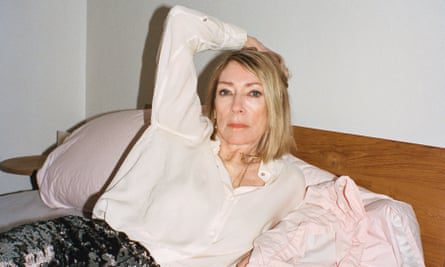
A quiet warmth passes through Gordon when she talks about her daughter, who stars in the Bye Bye music video. I ask whether all the effort you put into raising a child starts to pay dividends with an adult relationship. “I guess when she went to college. But things were different because of the breakup. We definitely became closer. I still annoy her at times. But, you know, she’s my favourite person in the world.”
She says that the feeling of alienation, which runs through her record and which she wrestles with in her new California life, feels most acute in her distance from Coco. “I remember Yoko Ono said to me: ‘I just never really got used to the going away part. You want them to leave, every parent wants their child to go out into the world, but at the same time it’s difficult. I never got used to that.’” Gordon nods in agreement: “It’s hard, when you’re nobody’s adult. It does make me feel like I have less of a home.”
At this point Gordon’s lunch date enters the bookshop and our time is wrapping up. You get the sense some artists could talk about themselves indefinitely; for Gordon you can tell an hour is more than enough. But I ask quickly about the love she’s receiving from gen Z fans online, the vloggers obsessed with her trap sounds. Would she ever follow in the footsteps of her friends the Breeders, who are supporting Olivia Rodrigo on her arena tour this spring? What if Taylor phoned her up offering an opening slot?
“I don’t know. Because I don’t think her audience would like it. It has to be a little bit of a fit. Even when Sonic Youth toured with Neil Young, it was really hard, seeing hippies sitting there giving you the finger. Also, I couldn’t tell you what her music sounds like, but I was on a plane with all her fans recently on the way to Utah and they were all wearing merch. That I quite like. I think I’d just take a sweatshirt.”
The Collective is released on 8 March.
